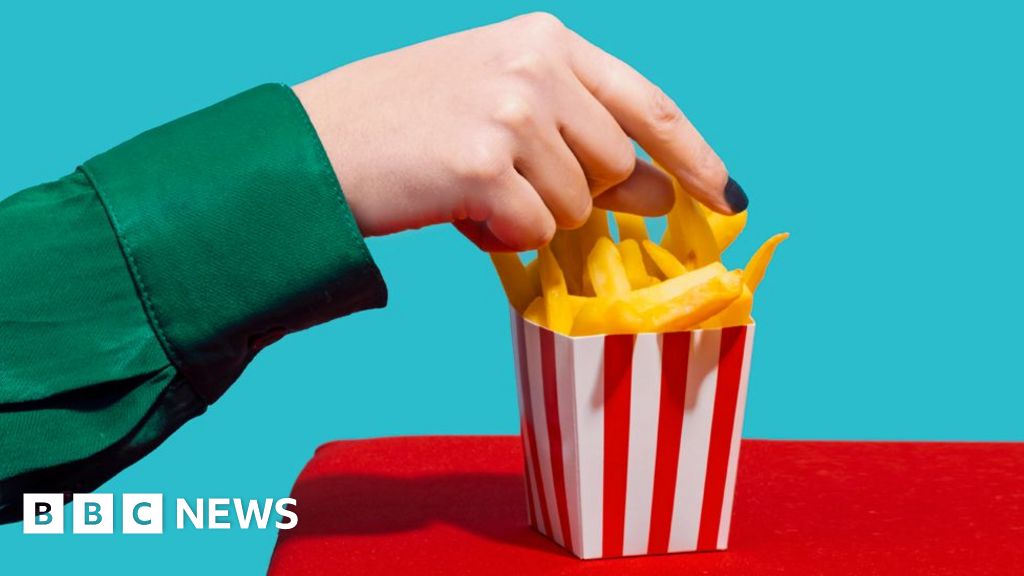People Say Coke and Fries Are Helping Their Migraines - But There's a Twist
Migraines are a debilitating condition that affects over 10 million people in the UK, impacting their daily lives, careers, and relationships. The pain can be excruciating, with symptoms ranging from intense headaches to numbness, blurred vision, and even speech and movement impairment. Despite medical treatments, there is no cure for migraines, and finding a reliable solution can be a daunting task.
Recently, a viral hack on social media has caught attention - the McMigraine Meal, which consists of a full-fat cola and a portion of salty fries. Hundreds of people have shared their experiences with this hack, claiming it helps alleviate their migraine symptoms. But what's behind this unusual remedy? Is there any scientific basis for its effectiveness?
Meet Nick Cook, a 37-year-old from Oxfordshire who carries "a wallet full of drugs" to combat his migraines. He claims that the caffeine and sugar in cola help him cope with his attacks. "When you live with this condition, and you're working a five-day week, you'll give anything a go," Nick says. "I've tried everything - from prescription medication to alternative therapies - but sometimes, a cold cola can make all the difference."
Kayleigh Webster, 27, has had chronic migraines her entire life. While she's tried various medications and treatments, including medical Botox, she credits the salt on chips for slowing down an attack. "It's not a cure, but it's definitely helped," Kayleigh says cautiously. "Migraines have completely made my life smaller."
The Science Behind the Hack
Prof Peter Goadsby, a neurologist at the NIHR-King's Clinical Research Facility, explains that research is beginning to produce positive results after years of underfunding. His latest study shows medications known as gepants could block a group of pain receptors in the lead-up to a migraine attack, cutting off the pain before it starts.
"Any new treatment is a glimmer of hope," Eloise Underwood, a chronic migraine sufferer, says. "They do say that nothing will work for everyone - but something will work for someone."
Lifestyle Changes: The Key to Managing Migraines
Prof Goadsby emphasizes the importance of lifestyle changes in managing migraines. Regularity, avoiding highs and lows, and being aware of warning signs such as yawning, sleepiness, mood change, or increased urine production can help prevent attacks.
"Listen to your body - don't listen to TikTok," Prof Goadsby advises. "Be careful of your brain." Nick, who has made significant lifestyle changes to manage his migraines, agrees. "I don't drink, I wear sunglasses even if it's cloudy, and I prioritize my health above all else."
On a recent stag-do weekend, Nick noticed the difference between his life and his friends' lives. "They were up all night drinking to the early hours," Nick says. "I turned up with my own pillow, apples, bananas, Weetabix, and any snacks I needed to keep me going." By taking care of himself, Nick has learned to manage his migraines and enjoy life without compromising his well-being.
The Risks of Fast Food and Processed Foods
Eloise Underwood warns that fast food, which often contains ultra-processed ingredients, can be a major trigger for migraines. "Tyramine, a natural compound commonly found in many foods, can actually cause severe migraines," she explains.
"There are so many videos online that take advantage of our desperation," Eloise says. She's seen people recommend putting feet in scorching water (not recommended by experts and potentially dangerous); drinking hot coffee (caffeine can be a trigger); or using vibrating devices, which have had little effect.
A New Hope: Research on Gepants
Prof Peter Goadsby's latest study offers a glimmer of hope for migraine sufferers. Medications known as gepants could block pain receptors before an attack, cutting off the pain altogether.
"Any new treatment is a glimmer of hope," Eloise says. "They do say that nothing will work for everyone - but something will work for someone."
